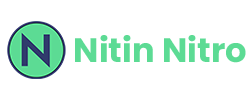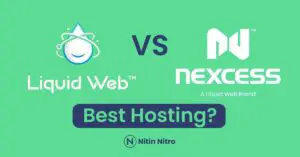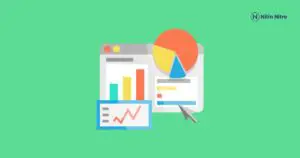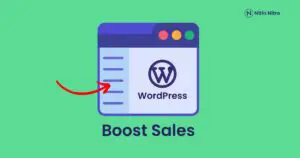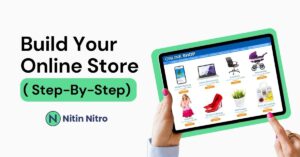Blogging has become an extremely popular way for people to share their thoughts, opinions, and expertise on a particular topic. But can blogging actually be turned into a profitable business? The short answer is yes, blogging can absolutely be a successful business if done right. Here’s a comprehensive look at how to turn blogging into a money-making endeavor.
Can Blogging Really Be a Business in 2024?
Many people start blogs as a hobby or creative outlet, not thinking about monetization. But blogging has tremendous money-making potential if you treat it as a business from the start.
There are several ways to generate income from a blog:
- Advertising – Display ads, sponsored posts, affiliate marketing
- Products – Digital products, online courses, physical products
- Services – Consulting, freelancing, coaching
- Subscriptions – Paid newsletters, membership sites
Top bloggers easily earn 5-6 figures per month. Even starting out, you can realistically make $500-$2000 per month within your first year if you put in the work. The key is providing high-quality content that attracts a loyal audience.
So in short – yes, blogging absolutely can be a profitable business! Let’s look at how to get started.
How to Start a Successful Blogging Business in 2024?
Follow these steps to launch a money-making blog:
1. Choose a Profitable Blog Niche
Your niche is the foundation of a successful blogging business. Make sure there is demand for information related to your topic, and that you can monetize the audience. Some lucrative niches include:
- Personal finance
- Health and fitness
- Food and cooking
- Parenting and family
- Travel
- Technology
Think carefully about your area of expertise and interest that fits a profitable niche.
2. Set Up Your Blog
Your domain name should be related to your niche for branding purposes. Self-hosted WordPress blogs are best for monetization. Easy web hosts like Hostinger make setting up WordPress simple.
Make your blog look professional with a great theme. Include an appealing header, graphics, and customization to stand out.
3. Create Valuable Content
Consistently publish in-depth, high-quality content. Provide education, entertainment, inspiration, or solutions for your audience.
Ideas for content formats:
- Tutorials
- Tips/how-to articles
- Industry interviews
- Case studies
- Reviews
- Guides and ebooks
Optimize content for SEO by including targeted keywords. This will help you rank in search engines and drive organic traffic.
4. Build an Email List
An email list is one of the best ways to monetize a blog. Offer an opt-in incentive like a freebie download in exchange for a subscriber’s email address.
Send out a weekly or monthly newsletter to subscribers with blog updates, useful info related to your niche, promotions, etc.
5. Make Money from Your Audience
Once you build an engaged audience, you can generate income in these ways:
- Sponsored posts – Get paid by brands to create content promoting their product/service
- Affiliate marketing – Earn commissions promoting other companies’ products
- Display advertising – Sign up for Google AdSense or another ad network
- Digital products – Sell online courses, ebooks, templates, graphics etc.
- Services – Offer consulting, freelancing, or coaching in your expertise area
- Events – Host a conference, meetup, or workshop
- Brand partnerships – Get paid to promote a brand or include their product in content
Diversify your income streams for the best results. Provide real value to your audience, and monetization will follow.
6. Promote Your Blog
Don’t rely solely on organic search traffic. Proactively promote your content in various places:
- Social media
- Online communities related to your niche
- Guest posts on other blogs
- Quora and online forums
- Paid advertising – Facebook, Instagram, Google, etc.
- Networking and outreach
Promotion will accelerate your audience growth so you can monetize faster. Set aside time for it in your blogging schedule.
Also Read:
What Type of Business is Blogging?
At its core, blogging as a business relies on regularly creating and publishing online content for an audience. This content can take many forms, including:
- Articles
- Podcasts
- Infographics
- Ebooks
By producing engaging content, bloggers are able to attract and retain an audience over time. The measure of success for a blog is its ability to generate income through:
- Advertising
- Affiliate marketing
- Sponsorships
- Product sales
- Subscription services
- Consulting/freelancing services
Blogging allows individuals and companies to position themselves as thought leaders and subject matter experts. It provides a platform to connect with a broader audience and share knowledge and skills.
So in essence, blogging as a business is the strategic creation and distribution of content online to generate revenue.
Success depends on factors like:
- Consistent, high-quality content
- Regular publishing schedule
- Clear understanding of target audience
- Effective marketing and promotion
With the right approach, blogging can become a sustainable and profitable business model.
What Do Bloggers Do in the Blogging Business?
To create a successful blogging business, bloggers must master a range of skills and responsibilities. These include:
- Content Creation: Bloggers spend a significant amount of time creating written posts, videos, podcasts, and other content formats that appeal to their audience. Content should be informative, engaging, and aligned with the blog’s niche.
- Audience Engagement: Building relationships with readers is critical. Bloggers engage through email newsletters, social media, polls, Q&As, and commenting on posts.
- Digital Marketing: Bloggers have to leverage SEO, social media marketing, email marketing, and possibly paid advertising to promote their content and drive traffic. Understanding these digital skills is a must.
- Design and Branding: A blog’s visual presentation and brand image strongly influence audience perceptions. Bloggers need to incorporate appealing designs, photos/graphics, and polished branding.
- Business Development: Bloggers have to focus on monetization methods, partnerships, affiliate programs, and revenue goals. Blogging requires an entrepreneurial, business-focused mindset.
- Analytics: Tracking traffic, engagement metrics, conversions, and ROI are essential to measure what’s working and optimize efforts. Bloggers should understand website analytics.
The work bloggers do centers around strategic content creation, audience building, effective marketing, and business development. It requires a diverse mix of creative, technical, analytical, and entrepreneurial skills.
Good and Bad Aspects of Blogging as a Business
There are both upsides and downsides to pursuing blogging as a business model:
Goodsides of Blogging as a Business
- Income Potential: Blogs can generate considerable income through ads, affiliates, products, services, sponsors, etc. Top bloggers easily make a 6-figure annual income.
- Work Flexibility: Bloggers can work from anywhere with an internet connection, on their own schedules. Blogging offers location and time flexibility.
- Sharing Knowledge: Blogs allow bloggers to share their expertise, thoughts, stories, and creativity with the world.
- Personal Branding: Blogging helps establish someone as an authority, leader, and influencer within a niche.
- Connections: Bloggers can engage with like-minded individuals, potential partners/sponsors, and industry experts.
- Passive Income: Certain monetization methods like affiliates or products can produce passive income over time.
Darksides of Blogging as a Business
- Time Commitment: Producing high-quality content and running all aspects of a blog requires major time and consistent effort.
- Competition: Many niches are extremely competitive with established sites. Gaining traction as a new blogger can be challenging.
- Financial Investment: Bloggers may need to invest in web hosting, premium tools/plugins, advertising, and other resources.
- Inconsistent Income: Revenue can fluctuate significantly month-to-month for many bloggers. Income is not guaranteed.
- Algorithm Changes: Changes to search engine algorithms or social media platforms can negatively impact organic reach/traffic.
- Criticism: Dealing with negative comments, backlash, or criticism can take an emotional toll and impact motivation levels.
There are good and bad elements to weigh when determining if blogging aligns with your goals, interests, time, and resources.
Key Factors That Make Blogging a Business
Certain factors indicate that someone has transitioned from casual blogger into operating a blogging business:
- Monetization: Actively using methods to generate income – ads, affiliates, products, paid subscriptions, etc. – signifies a business mindset.
- Brand Building: Strategically growing an authoritative brand and presence within a specific niche signals a business approach.
- Time Investment: Spending a significant amount of time creating content, connecting with readers, and marketing the blog makes it a business endeavor.
- Business Planning: Creating an editorial calendar, content strategy, income goals, budgets, and plans for growth reflects a business mentality.
- Targeted Efforts: Having a clear target audience and optimizing content specifically for that audience shows a business focus.
- Measuring Success: Tracking traffic, engagement, conversions, income metrics, and other analytics means treating the blog like a business.
While casual bloggers may make some extra money, those actively working to build a brand, audience, and income sources through strategic efforts have successfully transformed blogging into a business.
Ready to Turn Your Blog into a Business in 2024?
Blogging can start as a hobby but develop into a thriving business for those willing to put in the hard work and commitment needed.
If you are passionate about a topic, have expertise to share, and are eager to put in the time and effort, then blogging could be a fulfilling and financially rewarding business model for you.
With strategic branding, content creation, marketing, and business planning, you can establish your blog as a money-generating endeavor. Start with the right expectations and approach, and your chances of success will be strong.
The opportunities within the blogging industry are vast. So tap into your creativity and entrepreneurial spirit, and start building your blogging business today!
Frequently Asked Questions About Blogging As a Business
Can blogging be a full-time business?
Absolutely! Top bloggers make a comfortable full-time income from their blogs, often earning well into the six figures. Even earning $30,000-$50,000 per year is realistic working part-time once your blog is established.
Do bloggers have to pay taxes on their income?
Yes, bloggers must pay taxes on any income they generate through their blogs.
How long does it take to make money blogging?
It typically takes about 6-12 months to start generating income from a new blog. But you can make money within a few months if you have an existing audience or promote your content aggressively.
Is it possible to make a living from blogging?
Yes, it is possible to make a living from blogging, but it requires hard work, dedication, and a solid monetization strategy.
Do I need to have a specific niche to be a successful blogger?
No, but having a specific niche can make it easier to establish authority, build a following, and generate income.
What do most successful bloggers make money from?
The most lucrative ways bloggers make money are through affiliate marketing, selling online courses/products, providing consulting/freelancing services, sponsored content, and display advertising.
How much traffic do you need to make money blogging?
1. 1,000 sessions/month for display ads
2. 5,000 for affiliate offers
3. 10,000 for your own products/services
3. 50,000+ for sponsorships and brand deals
Do you need a lot of social media followers to succeed?
Having a strong social media presence helps, but it’s not strictly necessary at first. Many bloggers gain traction through SEO and word-of-mouth alone. Social followers will accelerate your success but don’t obsess over vanity metrics.
What are the biggest challenges when starting a blog?
1. Gaining a readership from scratch
2. Staying motivated before you make money
3. Creating high-quality content consistently
4. Finding enough time for it with a full-time job
